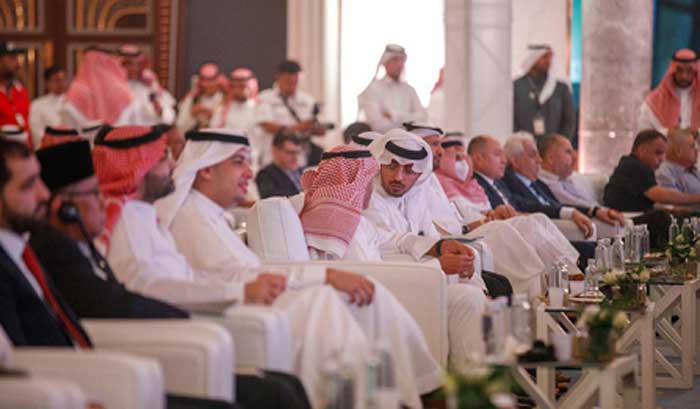KARACHI: Speakers highlighted the importance of regional harmony among states of South Asia for enhanced trade ties and social-economic development of the regional nations at the national conference on “Future Prospects of Regional Connectivity Through Dialogue in South Asia: Global and Strategic Perspectives” held recently at the University of Karachi, organized by Area Study Center for Europe, says a Press release.
Speaking on the occasion, Dr. Khalid Iraqi, Vice Chancellor of the University of Karachi, said the economic development of the South Asian region could be sustainably achieved until the disputes among the regional states are resolved in the most significant interest of their nations and their healthy beings.
He further said that the leadership with the states, along with various peace-mission platforms, should actively play a crucial role in building trust among regional nations to achieve the region’s socio-economic development.
On the occasion, Nusrat Mirza, Chairman, Rabta Forum International, said strong diplomatic ties among the South Asian states will lead to regional development on various fronts, including trade, economy, and tourism.
Najam Uddin Sheikh, former foreign secretary, said that Pakistan’s state should resolve the core issue of Kashmir’s conflict with India to pave the way for meaningful regional connectivity with regional states. Besides, he added, Pakistan should review its policy with Afghanistan to build up strong ties with the neighboring state based on mutual interest.
Qazi M.A Khalil, the former diplomat, said Pakistan should review its foreign policies with the changing dynamics of geopolitics and geoeconomics along with its strength through the China-Pakistan Economic Corridor (CPEC) and its crucial role in the Regional Cooperation for Development (RCD).
Prof Dr Shaista Tabbasum SAARC played a pivotal role in regional connectivity, which should also address the emerging issue of global warming and climate change in the region. She said regional connectivity could also resolve the energy crisis in the area; however, the lack of trust between Pakistan and India is the foremost hurdle towards positive developments.
Addressing the conference’s concluding session, Prof. Dr Tanveer Khalid said the national conference discussed essential aspects of Pakistan’s foreign policies, which included valuable recommendations to state departments for shaping its working strategy in the future for building confidence-building measures, peace, and harmony among regional countries.
Uzma Shujat, Director at Area Study Center for Europe, and Syed Samiullah, Research Scholar at Rabta Forum International – were also speakers at the conference.
Regional harmony essential for South Asia’s development: Speakers




